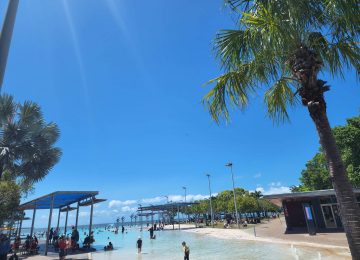Anyone who has spent a summer in Queensland knows how important it is to access a quality air conditioner. Many landlords understand this and include AC units on their properties. If you’re renting in Queensland and your landlord has included an air conditioner as part of your lease, here are some tips you should know to make the most out of your experience.
Tip #1. Understand Who Is Responsible for What
Renters often assume that repairs and associated costs are the landlord’s responsibility. This tends to be true unless outlined differently in the lease agreement, so ensure you have a thorough understanding of it before you sign. Also, keep a copy handy for your records.
Let’s assume that your renter’s agreement states that your landlord is responsible for aircon servicing and repair. This responsibility ends if you damage the AC unit. To frame it differently, the landlord is only responsible for repairing your AC if the damage it suffered is the result of regular use or an accident. A good practice is to treat the air conditioner as though you owned it, even though you don’t.
When renting in Queensland, requesting repairs from your landlord should be done in writing and as soon as you realize there is a problem. Following these steps can avoid potential conflicts in the future. At this point, the landlord must address the issue in a timely fashion or risk incurring penalties.
Tip #2. The Renter Must Take Care of the AC
Even though your landlord may be responsible for fixing a damaged air conditioner unit, the tenant is responsible for maintaining it as part of the property they’re renting. This only applies to a residential unit in the property you are renting (you wouldn’t be responsible for a building’s HVAC system, for example). Doing your part to keep the unit operational can prevent your landlord from making repairs in the future.
With air conditioning cleaning, your landlord may have specific methods they want you to follow. If they do, stick with them. If not, following the steps outlined in the owner’s manual (with most models, you can find a copy online).
There are two critical focuses to cleaning your air conditioner: wiping the inside and washing the air filter. With the former, it’s a simple matter of removing part of the exterior (usually by removing screws in the front) so that you can access the interior. From there, it’s just a matter of using a cleaning agent approved for AC units and wiping down the insides. Doing so combats mould and algae, which can develop in moist areas.
Cleaning the air filter is just as simple. Slowly remove the filter and rinse it with running water. Wash with soap or detergent and let it air dry before returning it to the AC unit.
If you perform these tasks every three months, you’ll keep your air quality high and your air conditioner running well. It’s not just your obligation as a tenant. It’s necessary to prevent dust and mould from building up in the unit and affecting your health.
Tip #3. When Cleaning Becomes Your Landlord’s Responsibility
As a renter, your obligations to maintain the property have limits. Complex mechanical issues, such as a blocked drainage system, fall under your landlord’s responsibilities. In that case, they will most likely need to hire a professional air conditioning service like Siv Air to diagnose and fix the problem. Hiring an air conditioner cleaning service will cost less than repairing the unit (unless it’s completely broken).
Tip #4. Who Pays the AC Bill when renting in Queensland?
As necessary as an air conditioner may be to living comfortably in Queensland, the tenant is responsible for their air conditioning cost per month. Note that this isn’t the case if your landlord agrees to pay your electric bill as part of the lease.
If utilities are your responsibility, you can keep your AC cost low by regulating how you use it. Running it 24/7 will naturally lead to an increase in your average electric bill. The same could happen if your unit has automatic settings that detect changes in the temperature and activates accordingly. An easy way to keep costs and energy consumption low is to only use your aircon system when you’re home and to close the doors and windows to better trap cold air in the room your AC is in.
Tip #5. Signs To Look Out For
When renting in Queensland you should keep an eye on the AC units. Most problems with air conditioners develop gradually over time with regular use. While it may seem like they are hard to detect, you can catch them before they become serious issues if you remain vigilant. Be on the lookout for the following:
- Bad odor. If your AC begins emitting a bad smell, that could be a sign that water has built up, allowing algae and mould to grow. In most cases, you can deal with this with regular cleaning, but if the smell continues, it could mean that mould or algae have developed somewhere in the drainage system. At this point, you would need professional assistance.
- Water dripping out the front. It’s normal for condensation to appear on the side of the AC that’s facing outdoors. However, if the water is spilling out the front of the unit, that usually means there’s a failure in the drainage system. Again, it’s best to let a professional address problems like this.
- The AC doesn’t reach the appropriate temperature. If you find that your AC produces too cold or too warm air regardless of your settings, the problem may lie in the cooling unit. Technicians should be able to replace any damaged parts.
Tip #6. Renting in Queensland – Put Your Trust in Siv Air
Since 2015, Siv Air has been servicing customers in the Queensland area with domestic and commercial AC installation and repair. Whether you’re a tenant renting in Queensland or a landlord, reach out to our incredible team to learn more about how Siv Air can help you keep your home cool and comfortable this summer.

![Renting in Queensland? Here’s some AC tips for you Anyone who has spent a summer in Queensland knows how important it is to access a quality air conditioner. Many landlords understand this and include AC units on their properties. If you’re renting in Queensland and your landlord has included an air conditioner as part of your lease, here are some tips you should know […]](https://www.sivair.com.au/wp-content/uploads/2021/03/female-hand-adjusting-temperature-with-dial-on-air-VG4EMC8-750x420.jpg)


